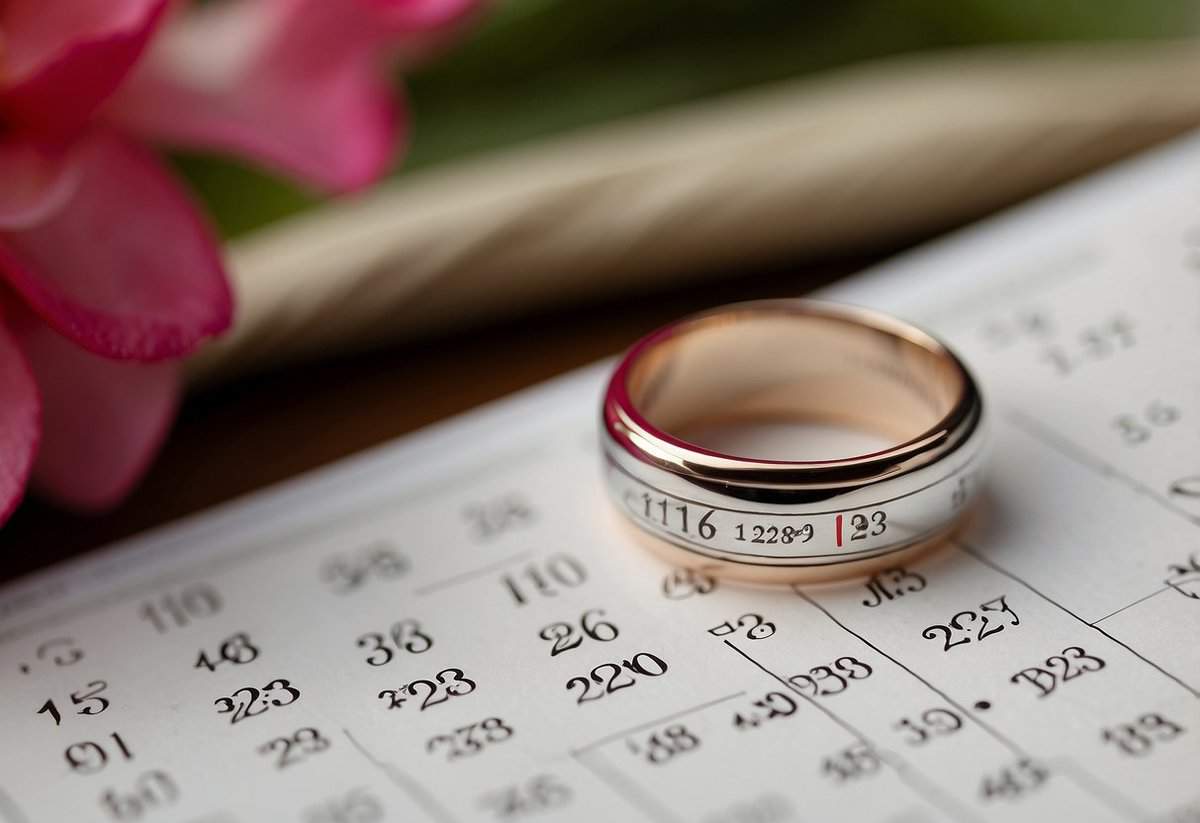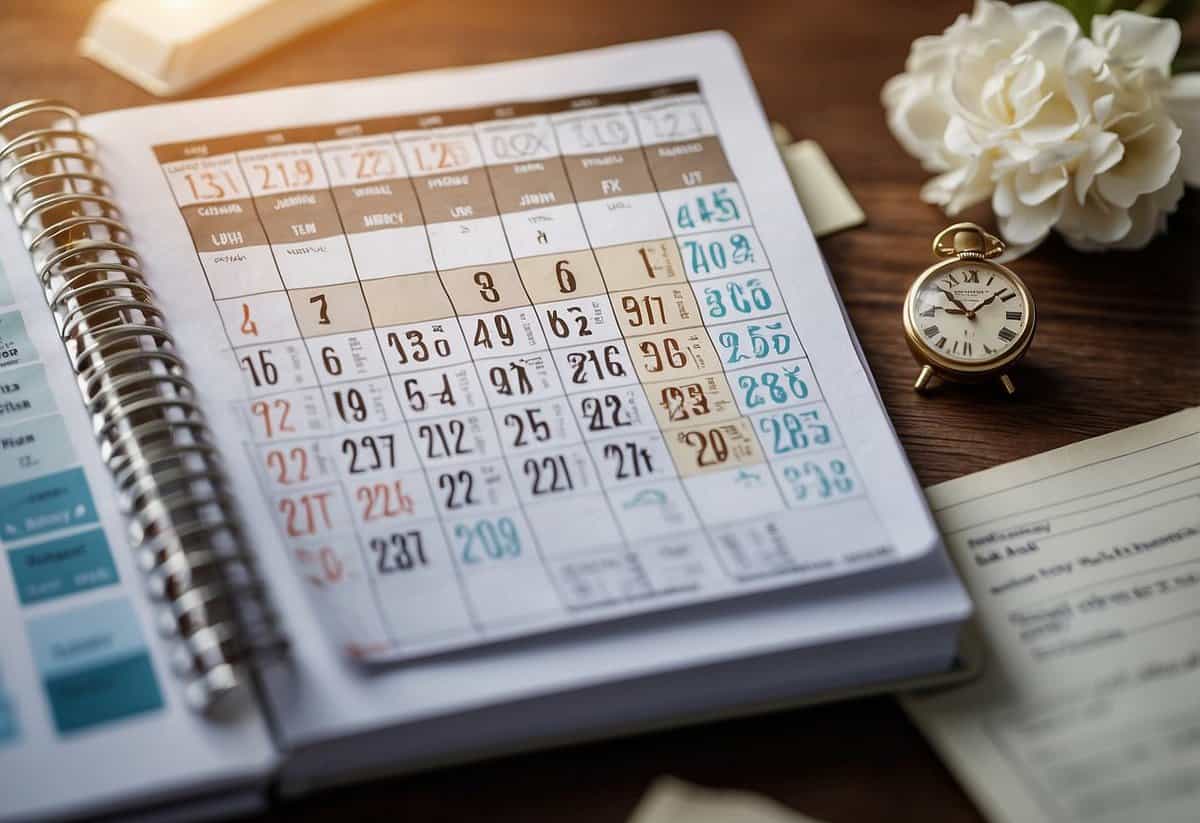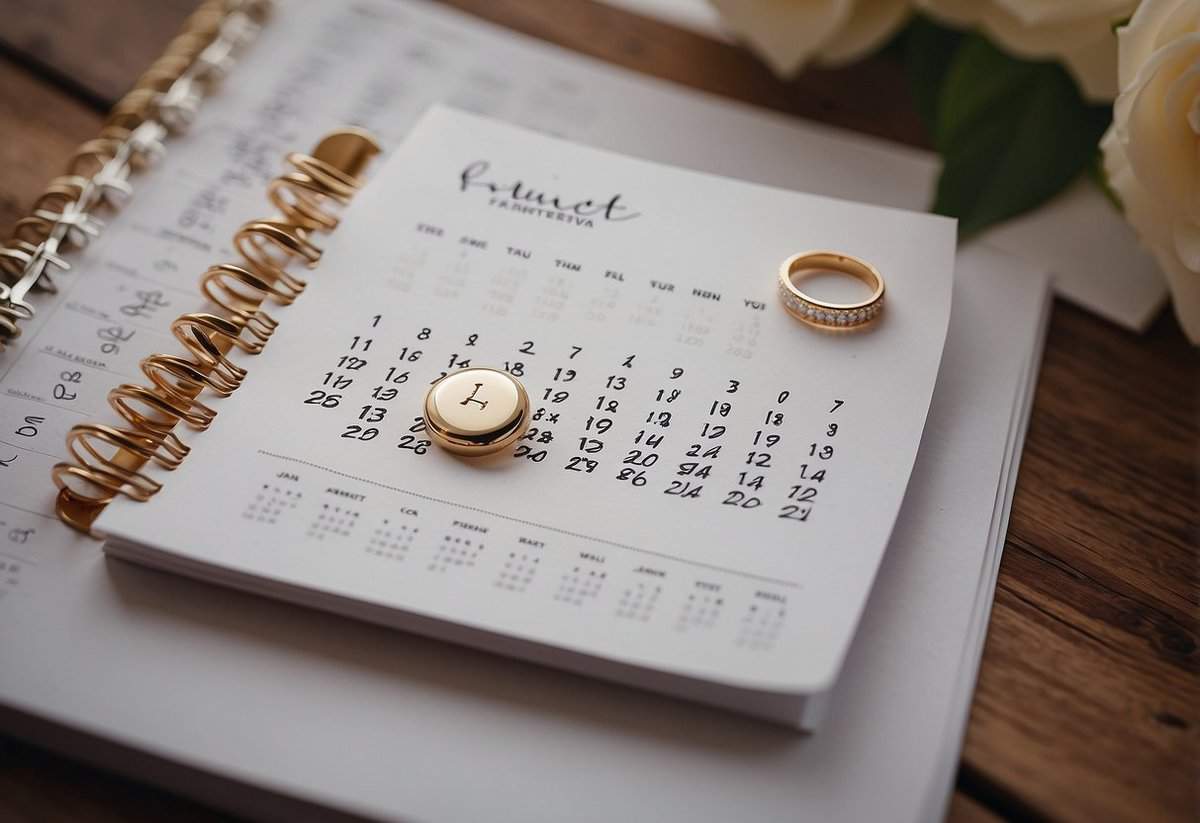How Long After Engagement Should You Marry? Tips for Timing Your Wedding
Getting engaged is a magical milestone that marks the beginning of a new chapter in your relationship. You’re probably wondering how long after engagement should you marry? The answer isn’t the same for everyone, but the average couple waits about 12 to 18 months before tying the knot. This period gives you plenty of time to enjoy your engagement and plan a wedding that reflects your love story.

Each couple is unique, and your timeline can depend on personal factors like family obligations, career goals, or financial readiness. Some couples feel ready to marry within six months, while others might prefer a longer engagement to ensure everything is perfect. The key is to find a balance that works for both of you.
If you’re unsure when to start planning, experts recommend waiting about three weeks after getting engaged to begin. This brief pause allows you to revel in the excitement without losing momentum. Plus, it gives you time to think about what you truly want for your big day.
The Engagement Timeline

Determining when to marry after getting engaged involves understanding different timelines, personal preferences, and cultural influences. This section explores essential aspects of the engagement period to help you find the best timeline for your situation.
Understanding Engagement
Engagement is a period of commitment where you and your partner prepare for marriage. It’s a special time to strengthen your relationship and enjoy being engaged. Many couples find this time useful for planning their future together.
Typically, couples spend around 12 to 18 months engaged before getting married. A longer engagement lets you plan every detail of your wedding without stress, while a shorter engagement might suit those eager to tie the knot quickly.
Determining Your Ideal Timeline
The best timeline for your engagement depends on your relationship and personal needs. If you are balancing work, family, and other commitments, a longer engagement might be more practical. This allows for thorough planning and preparation.
For others, a shorter engagement is ideal. This can help maintain excitement and momentum. Discuss with your partner what timeline feels right and consider factors like budget, desired wedding date, and availability of key venues or vendors.
Cultural and Personal Factors
Cultural traditions and personal beliefs can greatly influence your engagement timeline. In some cultures, long engagements are common, allowing for elaborate planning and family involvement. Others may value quicker transitions from dating to marriage.
Personal factors include your comfort level with commitment and readiness for marriage. If your families are involved, their expectations might also play a role. It’s important to balance these external influences with what works best for you and your partner.
Finding your perfect engagement timeline involves considering multiple factors to ensure a happy and stress-free journey to your wedding day.
Setting the Date

Choosing the right wedding date involves considering multiple factors like the season, the availability of your venue and vendors, and giving your guests enough notice.
Choosing the Right Season
The season you choose greatly affects your wedding. Summer and fall are popular times because of the nice weather. Winter weddings might save you money, but you must consider the cold and possible travel issues for guests.
Spring offers fresh flowers and mild weather. Think about your desired date and what time of year works best for your specific celebration. Also, consider your budget, as prices for venues and vendors might be higher during peak seasons like summer and fall.
Venue and Vendor Availability
Check the availability of your desired wedding venue and vendors before setting your date. Popular venues may book up a year or more in advance, especially during peak seasons. Start by making a list of places you love and reach out to them for their dates.
Consider having backup dates in case your first choice isn’t available. Be flexible with your date if possible, especially if you have your heart set on a specific venue or vendor. Availability can sometimes dictate when your wedding can happen, so this step is crucial in your planning process.
Giving Notice to Guests
Once you’ve picked your date, make sure to let your guests know well in advance. Consider sending out “save-the-date” cards 6-12 months before the wedding. This is particularly important if you’re having a destination wedding or getting married during a busy time of year.
Early notice ensures that your guests can plan accordingly. They might need to book flights, accommodations, or request time off work. Communicating your wedding date early helps ensure that the people who matter most can attend your special day.
Financial Planning and Budgeting

Getting married involves careful financial planning and budgeting to make sure your big day is special without breaking the bank. This section outlines key steps for creating a wedding budget, understanding costs, and saving effectively.
Creating a Wedding Budget
Start by discussing with your partner what kind of wedding you both envision. Consider aspects like venue, guest count, and travel needs. Knowing these preferences helps set a realistic budget.
Steps to create a budget:
- List all possible expenses (venue, catering, attire, etc.).
- Categorize them into “must-have” and “nice-to-have.”
- Assign costs based on your research and quotes.
Using tools like spreadsheets can help keep track of expenses. Regularly reviewing your budget ensures you stay on track financially.
The Cost of a Wedding
Weddings can be expensive, but knowing typical costs can help you plan better. The average cost of a wedding in the USA is around $30,000. Key expenses include venue, catering, and photography.
Breakdown of typical costs:
- Venue: $5,000 to $15,000
- Catering: $70 to $200 per guest
- Photography: $2,500 to $5,000
These estimates can vary widely based on location, date, and vendor choices. It’s important to remember that additional costs like travel or a honeymoon can add significantly to the total.
Saving for the Big Day
Saving for your wedding early can ease financial stress. Start by determining how much you need to save monthly to reach your target budget by your wedding date.
Tips for saving:
- Open a dedicated wedding savings account.
- Set up automatic transfers to this account.
- Cut unnecessary expenses and direct the savings towards your wedding.
Consider ways to increase your savings, such as taking on extra work or selling unused items. Additionally, talking to a financial advisor can help create a customized plan to meet your goals.
Wedding Planning Details

Planning your wedding involves organizing many details to ensure everything runs smoothly. This includes making a wedding checklist, choosing your wedding style and party, and staying in touch with vendors and guests.
Developing a Wedding Checklist
Creating a wedding checklist is crucial. Start by listing the main tasks such as selecting a wedding venue, creating a guest list, and booking vendors. Include timelines to keep track of when each task should be completed.
You can use tools like a physical planner or a wedding website to manage this checklist. Some couples find it helpful to personalize their wedding checklist according to their preferences and priorities.
Divide larger tasks into smaller, more manageable ones. For example, instead of just “book vendors,” list specifics like contacting photographers, caterers, and florists.
Choosing Your Wedding Style and Party
Your wedding style sets the tone for the entire event. Decide if you prefer something modern, rustic, or traditional. This choice influences everything from the venue to the decorations.
Selecting your wedding party is also important. This includes deciding who will be your bridesmaids, groomsmen, flower girls, and ring bearers. Choose people who you trust and who are willing to support you throughout the wedding planning process.
Involve your wedding party in key decisions and communicate your wedding style to them. This ensures that everyone is on the same page and your vision is clearly understood.
Communicating with Vendors and Guests
Maintaining clear communication with your vendors is essential. Meet with them regularly to discuss your needs and any changes. Make sure to get all agreements in writing, and maintain a record of all contracts and receipts.
It’s also important to keep your guests informed. Use a wedding website to share details like event locations, schedules, and any special instructions. Send out save-the-dates and invitations in advance to give your guests ample time to plan.
Follow up with your guests to get a final count, which will help with seating arrangements, catering, and other logistic aspects. Clear and continuous communication ensures everyone knows what to expect and helps prevent misunderstandings.
Enjoy the Journey

Embrace this special time as a newly engaged couple. Make the most of every moment as you plan your path to the wedding day.
Embracing the Engagement Period
Relish the days when you are just engaged. This is a unique phase of your relationship worth savoring. Take time to let the excitement sink in before diving into wedding planning. Immediately after your engagement, celebrating with a small engagement party can be a wonderful way to share the joy with friends and family.
Enjoy the small moments, like getting your ring sized or simply discussing your dreams and plans together. This period is also great for getting comfortable as a couple in this new chapter of life.
Managing Stress and Expectations
Planning a wedding can be exciting but also stressful. Setting a wedding timeline early on can help manage stress. Break tasks into smaller, manageable pieces and enjoy checking them off one by one.
Communicate openly with your partner about your expectations and try to keep a relaxed approach. It’s natural to feel overwhelmed, but regular breaks and fun activities away from planning can help you both feel refreshed. Remember, it’s okay to ask for help from your bridal party or family members.
Celebrating Milestones
Celebrate each milestone in your journey to getting married. This includes moments like choosing wedding attire, sending out save-the-dates, or finalizing your guest list. Each step is a significant part of your story together.
Host small gatherings or dinners to celebrate these achievements, or even simple date nights to appreciate your progress. These celebrations don’t need to be grand; what’s important is making time to honor and enjoy each milestone as it comes. Doing so strengthens your bond and builds excitement for your wedding day.



